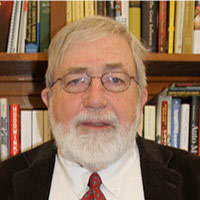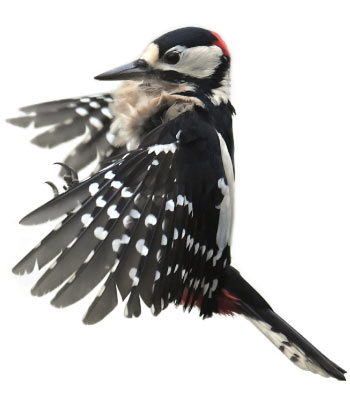
Paul Zedler has devoted his life’s work to studying ecosystems and teaching the next generation of environmental professionals … but it seems nature isn’t done with him yet. “Right now, we have a woodpecker pecking on the outside of the house. We love woodpeckers. They’re great, but not when they decide that they want to pound on the side of your house,” said Zedler, a recently retired professor of 55 years. “Nature can be out to get you sometimes.”
Zedler and his wife, Joy Zedler, a fellow UW–Madison ecologist and now emerita professor of botany, purchased their house and the 38-acre property that surrounds it over 10 years ago. The house has cedar siding which, coincidentally, woodpeckers love because it resonates like a drum. “Much better than a dead tree,” he said.
While maintaining and restoring his land takes up most of Zedler’s time these days, he hasn’t always lived in such proximity to the great outdoors. Zedler grew up in the city of Milwaukee, surrounded by his two older siblings, his German heritage, and his father’s refrigeration business. His mother grew up in Michigan’s Upper Peninsula. Their family trips “up north” were a return to her woodstove-wrangling and blueberry-picking past, and for Zedler, an opportunity to experience wildness, if not exactly wilderness, and to launch his nascent interest in ecology.
For college, Zedler stayed close and enrolled in the University of Wisconsin–Milwaukee shortly after the school transitioned from a two-year program to a four-year institution. Considering himself more of a “feckless student,” he majored in English and enrolled in whatever class suited his fancy. “I just wandered around looking for something,” Zedler said. “Oh, you can read books, and they give you credit for that? I’ll become an English major.”
After completing his undergraduate degree, Zedler attended UW–Madison where he approached the botany department to continue his studies. His first interviewer pointed him in the direction of the still-emerging science of ecology, noting that Zedler had taken two semesters of calculus in undergrad which would be an asset to the blossoming quantitative efforts of the ecological field. He was then set up with a teaching assistantship and started his master’s in Botany, continuing through to a PhD. Zedler found himself fortunate enough to obtain the now-extinct position of Arboretum Botanist, which allowed him, among other things, to wander the region for seeds of native plants to be made available to researchers on an international seed exchange.
“If you look at any ecosystem, the one thing that’s consistent is that it’s always changing. There is no true stability — only greater and lesser degrees of change.”
— Paul Zedler
During this time, he met Joy Buswell, a fellow graduate student and teaching assistant, and the two got married while they were still students together. “In those long-ago days, you could actually survive on two teaching assistantships,” he said. The couple went on to graduate the same year, 1968. “She graduated in four years, and I in five, if that gives you a hint as to the differences between my wife and myself,” Zedler chuckled. After graduation, he was offered a postdoc position at the University of Missouri–Columbia where he spent a year at the School of Forestry.
 Post-postdoc, Zedler moved to San Diego to start teaching at San Diego State University, which at the time was expanding its faculty in Ecology. Joy followed him there, receiving her own teaching position shortly after. There, Zedler worked on fire ecology, endangered species, and ephemeral wetlands research, and enjoyed how species-rich the area was compared to his home state of Wisconsin. “I love Wisconsin, but if we put them side by side, California has a little bit more interesting biology and ecology, shall we say,” Zedler said. While in San Diego, the Zedler family expanded by the birth of twin daughters, Sarah and Emily, now both PhD holding scientists.
Post-postdoc, Zedler moved to San Diego to start teaching at San Diego State University, which at the time was expanding its faculty in Ecology. Joy followed him there, receiving her own teaching position shortly after. There, Zedler worked on fire ecology, endangered species, and ephemeral wetlands research, and enjoyed how species-rich the area was compared to his home state of Wisconsin. “I love Wisconsin, but if we put them side by side, California has a little bit more interesting biology and ecology, shall we say,” Zedler said. While in San Diego, the Zedler family expanded by the birth of twin daughters, Sarah and Emily, now both PhD holding scientists.
In 1997, it was his turn to follow Joy Zedler as she was offered a position as the Aldo Leopold Professor of Restoration Ecology at UW–Madison. Zedler, faced with unemployment, benefitted from the administrative creativity of colleagues in the then Institute for Environmental Studies and the UW Arboretum and obtained a tenured teaching-research position. He dabbled (his term) in university administration, serving as the chair of the environment and resources graduate program (2008–2010) and associate director/dean of the Nelson Institute (2010–2019).
Now retired, Zedler reflects on his time teaching, noting that the last class he taught was also one of the most enjoyable. “This was a capstone class, and I ended up with only four students because we had quite a large number of sections that particular semester,” Zedler said. “It was a project-based class, so it wasn’t just me giving lectures and them taking notes. It was me helping them select the project and then execute it. What made it enjoyable was that I got to know all four students well.”
Zedler continues to work on ecological projects and research, most recently co-publishing a paper about a flooding event that occurred at the Faville Prairie, one of the UW–Madison Arboretum’s outlying properties. As his career culminates in the research he’s conducted, papers he’s published, and students he’s taught, Zedler has been following the current enthusiasm for “sustainability.” He cautions that sustainability is about managing change. “If you look at any ecosystem, the one thing that’s consistent is that it’s always changing,” Zedler said. “There is no true stability — only greater and lesser degrees of change, and to survive change the necessary quality is resilience.”
And if there’s one thing he hopes will change soon about nature, it’s the woodpecker drilling holes into the side of his house.